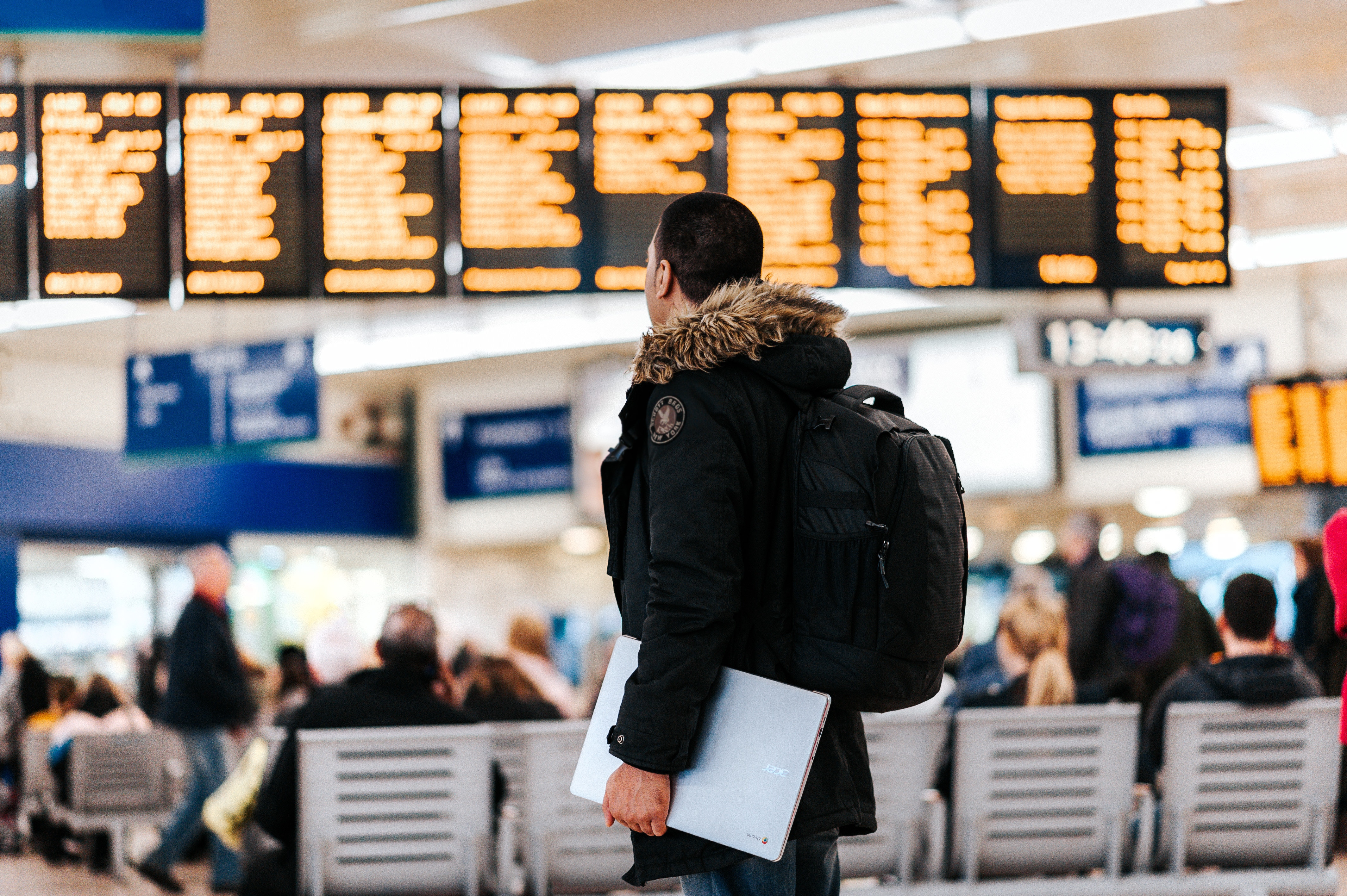How business travel is changing in 2019
)
Published on July 8, 2019
)
Business travel is big business. Companies send team members all over the world to meet clients, close deals, and build their networks.
The industry is expected to reach US$1.7 trillion by 2022, an uptick that's powered by the improved state of global trade, a better financial status of emerging markets, and shifting exchange rates.
In other words, we love to fly for work and we're doing it more than ever.
But like many aspects of the business world, managing corporate travel is changing. New technology, environmental changes and other factors all influence the way we think about being abroad on the boss's dime.
That's why we've done the research. This is how you can expect business travel to change this year.
More travel management tips, tools and strategy:
An increasingly personalized business travel experience

Today's travel experience has definitely improved from even just a decade ago, when some airlines still required customers book tickets over the phone. The coming years, however, could possibly end up bringing far more radical changes.
Emerging technologies like artificial intelligence are bound to make their mark on business travel, mainly focused on creating a much more personalized experience. This already happens in the background of the service, where the analysis of big chunks of data is used to make search results more personal and useful when booking a ticket.
And it will also happen right in front of the user, providing them with detailed and customized information. For example, airports will likely soon show you the fastest way to get to the right gate based on current foot traffic - perhaps even on your phone.
Step by step, we're moving closer to the concept of an all-knowing travel assistant. All signs point to a future in which our business trips are supported by a AI that automatically pulls up contextual information (like your reservation number) right when you need it and performs actions (like ordering an Uber) before you even thought about them.
Higher accommodation prices for business travel
Most airlines have started experimenting with new products at lower price points, but until now, hotel chains have generally stayed true to their pricing strategy. That's about to change.
Some of the free amenities that you've come to expect in mid- to high-range hotels might be free today, but could be part of an optional package soon. It's already common to pay for services like Wi-Fi, dry cleaning or a late checkout.
These will often be covered by expense policies, but it’s a smart way for hotels to quietly increase their prices, and for employers to have to shoulder the burden.
But there is one factor that might soon force prices down...
The impact of the sharing economy on business travel
There's also the increasing impact of the sharing economy, led by Airbnb, a service that has started to get popular with business travelers. While hotels have long been the gold standard for business trips, employees are becoming more open to new kinds of lodging experiences.
Booking an Airbnb instead of a four-star hotel could save money, making it possible to spend part of the budget on something else. But most importantly, more and more people are looking to mix business with leisure while on a trip — something colloquially known as 'bleisure'.
This trend refers to any kind of business trip being mixed with a personal holiday. For example, when an employee spends five days in New York for meetings, they might add on a weekend for their own enjoyment.
Staying in an Airbnb gives them the opportunity to get a much more authentic, local experience. Plus it'll often come with cooking facilities, laundry, and some of the other extras that a longer stay requires.
So far, businesses have been content to book directly with hotels. Despite the higher rates, companies prefer the predictability (and likely the rewards) that come with this option.
But as AirBnb, Booking.com, and other modern sites build on their corporate offerings, this is bound to change.
The Uber effect
One trend that companies have been keen to jump on, however, is ride-sharing. Uber is already more popular among European businesses than all taxi companies combined.
And while Lyft doesn't yet have a presence on the continent, there are other local options like Kapten, Taxify, and Heetch which are soaking up market share.
Increased digital security in business travel
The travel industry is dominated by old software every step of the way. The booking systems used by airlines and hotels can be ancient, and the systems used by airports are often even older since they need to be standardized across the world.
Unfortunately, that means they're not very secure. A glaring example of this is the way boarding passes expose sensitive information right on the ticket. Anyone with basic computer skills can easily look up personal data from a pass that was posted on social media or left in a rubbish bin.
Gaps in the security of these systems means that hackers can get access to credit card and passport information, which opens the door to even more social engineering attacks. This obviously doesn't work with any kind of business privacy policy — especially for companies dealing with large amounts of sensitive information.
That's why the travel industry is working hard to implement better technology that protects their interests. According to research conducted by SITA, one of the largest travel IT companies in the world, 91 percent of airlines are making advanced preparations to manage the increasing risks of total digital connectivity — a number that’s sure to increase over the coming years.
Worried about credit card security? Read this quick guide to corporate credit fraud.
A modern tool to support your business travel
Yes, the future is looking bright, and more changes are just around the corner. So why not be ahead of the curve?
Spendesk is the full-service expense and travel management platform that's powered by technology so good, that some people think it's from the future.
Trust us — you'll love it.



)
)
)